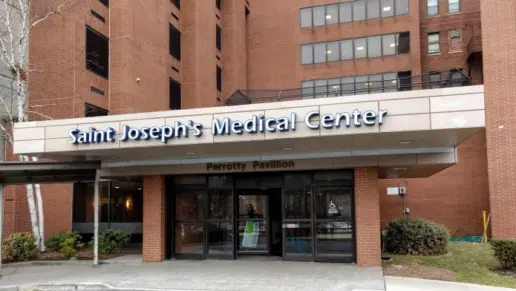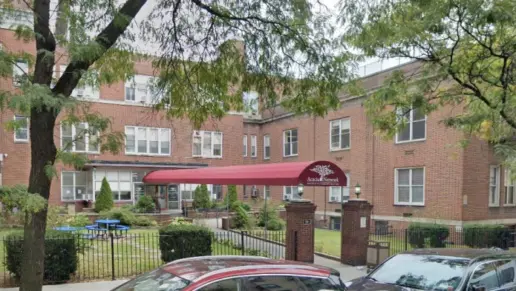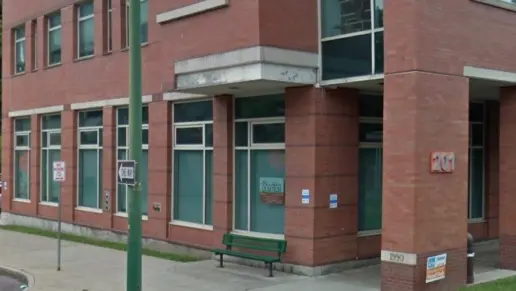About TRI Center – Drug Abuse Treatment
TRI Center provides clients with an integrative approach to treating substance use disorders. They have three locations in New York including one in the West Bronx. They are staffed with licensed alcohol and substance abuse counselors, nurses, and psychiatrists who work together with your recovery as a priority.
Treatments at TRI Center use cognitive-behavioral techniques with other therapies and complementary practices like hypnosis, yoga and mindfulness meditation. I appreciate that their program is not necessarily based on 12-steps but instead encourages you to join a recovery support network.
Personalized Recovery Treatment for Healing
I appreciate that TRI Centers provide a simple process for getting going with your recovery. It begins with a prompt intake consultation that will be scheduled within 24 hours of your call. A professional counselor will conduct a psychosocial evaluation and drug and alcohol assessment.
Then, the TRI Center team will develop a personalized recovery plan for your needs. It will generally include a mix of individual and group therapy sessions as well as holistic services.
You’ll be assigned a primary therapist who will be your main support person on your journey. I like that they also provide and assign a recovery coach to you if you request one.
Medication-Assisted Treatment To Manage Cravings
The TRI Center offers medication for opioid use disorder (MOUD) and medication for alcohol use disorder (MAUD) to manage your cravings and withdrawal symptoms. Both MAUD and MOUD use FDA-approved medication blended with behavioral and holistic therapies to help you recover from addiction.
The medications that TRI Center offers methadone, naltrexone and buprenorphine. The facility is not far from places you can relax after your treatment sessions, such as the New York Botanical Garden and The Bronx Zoo.
Rehab Score
Accepted Insurance
Other Forms of Payment
Medicaid is a state based program that helps lower-income individuals and families pay for healthcare. Medicaid covers addiction treatment so those enrolled can use their coverage to pay for rehab. When a program accepts Medicaid the client often pays very little or nothing out of their own pocket.
Private insurance refers to any kind of healthcare coverage that isn't from the state or federal government. This includes individual and family plans offered by an employer or purchased from the Insurance Marketplace. Every plan will have different requirements and out of pocket costs so be sure to get the full details before you start treatment.
Self-pay involves paying for treatment out of your own pocket. You can use savings or credit, get a personal loan, or receive help from family and friends to fund your treatment. If you don't have insurance or your insurance plan doesn't cover a specific program, self-pay can help ensure you still get the care you need.
Sliding scale payments are based on a client's income and family size. The goal is to make treatment affordable to everyone. By taking these factors into account, addiction recovery care providers help ensure that your treatment does not become a financial burden to you or your family, eliminating one barrier to care.
Addiction Treatments
Levels of Care
Treatments
The goal of treatment for alcoholism is abstinence. Those with poor social support, poor motivation, or psychiatric disorders tend to relapse within a few years of treatment. For these people, success is measured by longer periods of abstinence, reduced use of alcohol, better health, and improved social functioning. Recovery and Maintenance are usually based on 12 step programs and AA meetings.
When you choose drug rehab in New York, you'll participate in a variety of treatments that are designed to help you live a drug-free lifestyle. Common methods of treatment include group, individual, and family counseling, medication management, nutrition, exercise, and management of co-occurring mental health disorders.
Many of those suffering from addiction also suffer from mental or emotional illnesses like schizophrenia, bipolar disorder, depression, or anxiety disorders. Rehab and other substance abuse facilities treating those with a dual diagnosis or co-occurring disorder administer psychiatric treatment to address the person's mental health issue in addition to drug and alcohol rehabilitation.
Opioid rehabs specialize in supporting those recovering from opioid addiction. They treat those suffering from addiction to illegal opioids like heroin, as well as prescription drugs like oxycodone. These centers typically combine both physical as well as mental and emotional support to help stop addiction. Physical support often includes medical detox and subsequent medical support (including medication), and mental support includes in-depth therapy to address the underlying causes of addiction.
Substance rehabs focus on helping individuals recover from substance abuse, including alcohol and drug addiction (both illegal and prescription drugs). They often include the opportunity to engage in both individual as well as group therapy.
Programs



Clinical Services
Group therapy is any therapeutic work that happens in a group (not one-on-one). There are a number of different group therapy modalities, including support groups, experiential therapy, psycho-education, and more. Group therapy involves treatment as well as processing interaction between group members.
Trauma therapy addresses traumatic incidents from a client's past that are likely affecting their present-day experience. Trauma is often one of the primary triggers and potential causes of addiction, and can stem from child sexual abuse, domestic violence, having a parent with a mental illness, losing one or both parents at a young age, teenage or adult sexual assault, or any number of other factors. The purpose of trauma therapy is to allow a patient to process trauma and move through and past it, with the help of trained and compassionate mental health professionals.
Staff
President, CEO & Founder
COO
Nurse Practitioner
Contact Information
2488 Grand Concourse street
Bronx, NY 10458







